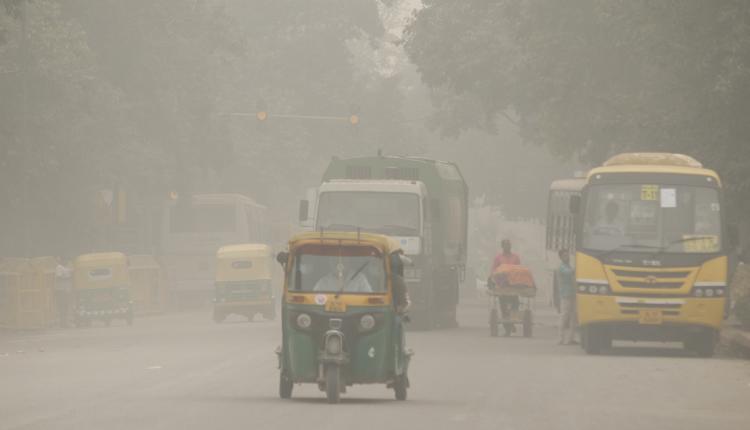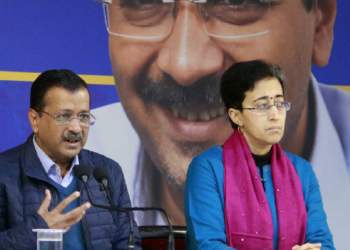New Delhi: The overall Air Quality Index on Thursday evening was at 407, in the ‘severe’ category, according to data from the System of Air Quality and Weather Forecasting And Research (SAFAR).
In the national Capital, the Ashok Vihar station was in the severe category with PM 2.5 at 425 and PM 10 at 433 while the CO was at 90, under ‘satisfactory’ category at 6 p.m., as per the Central Pollution Control Board (CPCB).
The AQI between zero and 50 is considered ‘good’; 51 and 100 ‘satisfactory’; 101 and 200 ‘moderate’; 201 and 300 ‘poor’; 301 and 400 ‘very poor’; and 401 and 500 ‘severe’.
At the Bawana station PM 2.5 was recorded at 440, in the ‘severe’ category and PM 10 at 389, in the ‘very poor’ category, while the CO reached 107 ‘moderate’.
At the Delhi Technical University (DTU) station, the PM 10 reached 420 under ‘severe’ category while PM 2.5 was at 313 under ‘very poor’ category on Thursday at 6 p.m. The CO was recorded at 85 and NO2 was at 78, under the ‘satisfactory’ category.
The station at Dwarka Sector 8 recorded PM 10 at 455 in the ‘severe’ range and PM 2.5 at 380 ‘very poor’, while CO was at 135, under ‘moderate’ category.
The air quality at the Indira Gandhi International Airport T3 area was in the ‘very poor’ category with PM 2.5 at 386 and PM 10 at 355 while the CO reached 104 in the ‘satisfactory’ category.
The PM 2.5 at ITO was recorded at 418, putting it in the ‘severe’ category while PM 10 reached 391, placing it under ‘very poor’ category.
The CO was recorded at 129 and NO2 at 193 ‘moderate’ on Thursday.
At Lodhi Road, the AQI with PM 2.5 concentration was at 338 under the ‘very poor’ category, PM10 was recorded at 266, in the ‘poor’ category while CO was at 113 in the ‘moderate category’.
At Punjabi Bagh, the PM 2.5 reached at 411 and PM 10 at 405, both under ‘severe category’.
Earlier in the day, addressing a press conference, Delhi’s Environment Minister, Gopal Rai, said that pollution levels in northern India have remained stagnant.
Over the last eight to ten days, there has been slow air movement, decreasing temperatures, and the accumulation of pollution.
“Given the current situation, it is expected that the GRAP IV measures will need to be in place for at least the next week,” said Rai.
(IANS)
















